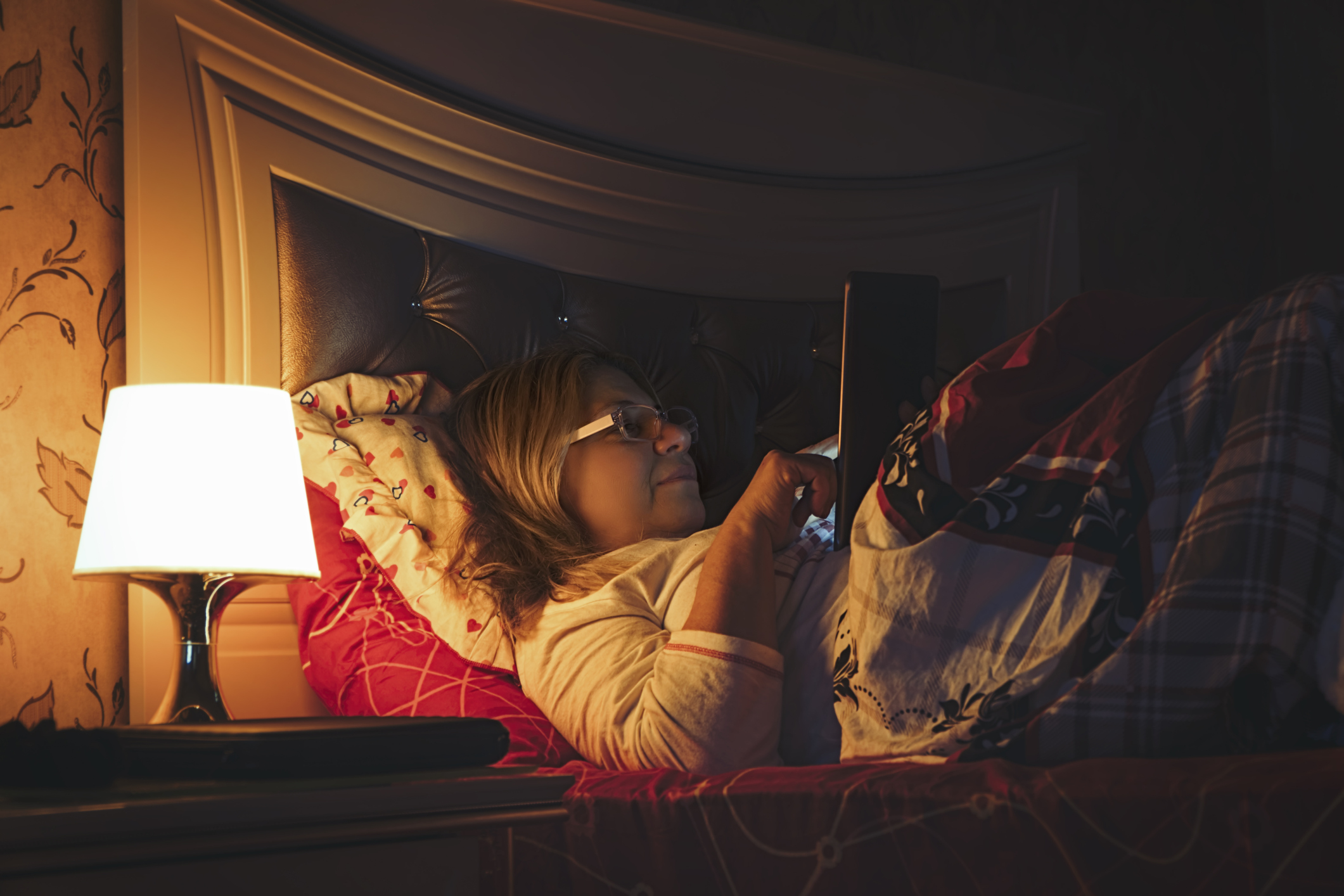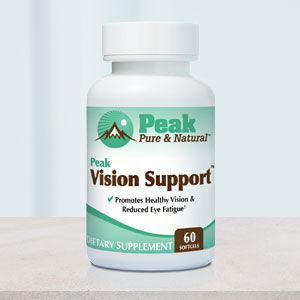Get Easy Health Digest™ in your inbox and don’t miss a thing when you subscribe today. Plus, get the free bonus report, Mother Nature’s Tips, Tricks and Remedies for Cholesterol, Blood Pressure & Blood Sugar as my way of saying welcome to the community!
Busting the myths about screentime, blue light and sleep

You’ve probably heard all the warnings about cutting down on screentime in the bedroom and why it’s important to avoid the blue light they produce — especially if you hope to get a good night’s sleep.
But, if you’re like me, going to sleep screen-free just isn’t going to happen.
For me, reading my Kindle in bed is a nighttime ritual I refuse to give up. It helps me distress from the day and begin to wind down. For you, maybe it’s watching your favorite show on Netflix or listening to music on your smartphone.
Well, I’ve got good news for you…
You can throw out the advice that tells you all screen time is bad for your sleep — and start feeling good about catching up on your favorite book or show, enjoying YouTube or even browsing the internet.
That’s because scientists have now found that not all screen time before bed is bad. In fact, if you swear watching TV before bed helps you sleep better — your assumption has now been validated…
Screentime before bed is ok, but duration matters
The study, performed by a team at the University of Delaware, involved 58 adults, all of whom kept a sleep diary to track how much time they spent using various forms of media before bed, the location of the usage and how much multitasking was involved.
The researchers then monitored each person’s brain activity to determine what time they fell asleep, how much total sleep they got and the quality of that sleep.
And the results were surprising…
While the study did show that people who spent long periods of time on screens before bed got less sleep no matter the chosen activity, brief sessions were a different story altogether.
In fact, according to Dr. Morgan Ellithorpe, the study’s lead author, watching TV, listening to music and other screen-based activities for brief periods actually helped participants get to bed earlier — and sleep longer.
Dr. Ellithorpe’s advice?
“If you are going to use media, like watching TV or listening to music, before bed, keep it a short, focused session and you are unlikely to experience any negative outcomes in your sleep that night.”
The only factor that was unaffected by media use before bed was sleep quality.
Screen time without the blue light worries
Nighttime screen junkies rejoice!
If you’re not ready to close your eyes once you hit the sheets, you can enjoy your nightly ritual without worrying about any negative impact on your rest — as long as you keep it to a minimum.
And there’s more good news…
While blue light truly is something to limit since it’s been linked to everything from weight gain and accelerated aging to cancer, you can still spend time with your favorite screens and reduce your exposure.
Wearing glasses that filter blue light has been shown to create a form of physiological darkness. This can help you boost your sleep quality and quantity, without cutting back on your screen time.
Eye nutrients can help too. Antioxidants lutein and zeaxanthin act as a sort of “natural sunscreen,” protecting the eyes from blue light and UV light that increases the risk of developing age-related macular degeneration (AMD) or cataracts. You’ll find these gems in those veggies your mom was always after you to eat… like carrots, spinach, pumpkin, asparagus and broccoli.
Editor’s note: Did you know that when you take your body from acid to alkaline you can boost your energy, lose weight, soothe digestion, avoid illness and achieve wellness? Click here to discover The Alkaline Secret to Ultimate Vitality and revive your life today!
Sources:
The complicated impact of media use before bed on sleep: Results from a combination of objective EEG sleep measurement and media diaries — Wiley Online Library













